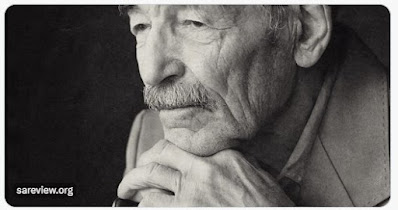 |
| Pictures of the hostages on a sign to buy local Israeli products |
The television news is on. The news is always on. Rockets, sirens. A
soldier's death. Scenes of destruction in Gaza. Scenes of destruction in the
kibbutzim. The wounded. Unfathomable terror. The hostages.
Panelists discuss the issues. There are no answers.
Doomscrolling a Facebook news feed. Memes, links to articles.
Descriptions of antisemitic marches and attacks on Jews worldwide. Fund-raising
efforts and rallies of support. Tales of the victims. The hostages.
People ask me if I'm OK, but none of us are OK. My son and son-in-law
are too old to serve in the army reserves and we don't personally know any of
the victims, but with rockets flying overhead, and the bombings in Gaza as well
as rocket interceptions over Tel Aviv audible from our home, this is all very
personal.
So, how do you cope? How can you manage these unmanageable days?
Everyone has their own survival guide. This is mine, in no particular order.
Exercise – start the day very early with a 5-kilometer run in the
gym.
Work – carry on with a regular routine by working remotely and
conducting meetings on Teams and Skype.
Read – buy countless books from Amazon. Lately I've read The
Heaven & Earth Grocery Story by James McBride; The Searcher by
Tana French; The Lamplighters by Emma Stonex; and The Making of
Another Major Motion Picture Masterpiece, a novel by Tom Hanks.
Write – while I haven't been able to write fiction, I have
written occasional journal entries telling what it's like living through a war.
And I recently wrote reviews of two short story collections – East Jerusalem Noir and West Jerusalem Noir.
Volunteer – I've joined the civil guard on Neve Ilan, serving
shifts at the main gate. While I'm not guarding with a gun, I am stopping cars
driving in, asking the identity of unfamiliar faces, and hopefully providing a
deterrent to anyone suspicious coming into my community.
 |
| Guard duty at the moshav gate |
Binge – Netflix plays a major role in our evenings, and we
generally watch limited series, an episode every night. Recently we've seen 'Live
to 100, Secrets of the Blue Zone'; 'Wellmania'; and 'Painkiller'. Currently
we're watching 'All the Light We Cannot See'.
Laugh – Occasionally we'll watch a Stephen Colbert opening
monologue, Saturday Night Live skits on YouTube, or a Taylor Tomlinson stand-up
special.
Listen to music – at the gym, in the car. Loud music to drown out
everything and quiet music to chill.
Listen to podcasts –True crime, science, Bulgarian history, and a
weekly episode of 'Wait Wait…Don't Tell Me!'
Be thankful for family – babysitting when we're needed and a
Friday night Shabbat dinner to keep us close to our loved ones.
Be thankful for our home – we were just days away from finishing
the construction of the apartment above our house but now the contractor's
workers can't cross into Israel. But how can we complain? There are so many
Israelis who have been evacuated from their homes in the south and from their
homes in the north. They are staying in hotels all over the country for an
indefinite period of time. There are so many who have lost everything; their
communities have been destroyed. We are thankful that our community is here for
us and we have a safe roof over our heads.
Hike/Walk – get out of the house and into nature. On Shabbat I
walked through unfamiliar Jerusalem neighborhoods and whenever I can, I hike
into the forests near Neve Ilan.
Sympathize – with the victims, the families, the mourners. I
can't imagine what it's like for them. The funerals. The hostages. Always that
– the hostages.
Support – buy blue and white products, including cheese from the
Beeri Dairy and vegetables from the kibbutzim near Gaza.
 |
| Cheese from the Beeri Dairy |
Don't turn on the television - but, how can you not turn on the
television? How can you not read the news? How can you not spend hour after
hour doomscrolling? It's hard.
Survive – these are difficult days, but we'll make it. We
survived COVID; we'll get past this. This is a war and we will win. We have no
choice.
Related articles:
War Diary: What Terrifies Me More Than Anything Else
War Diary: Day 5
Israel at War. Again.






